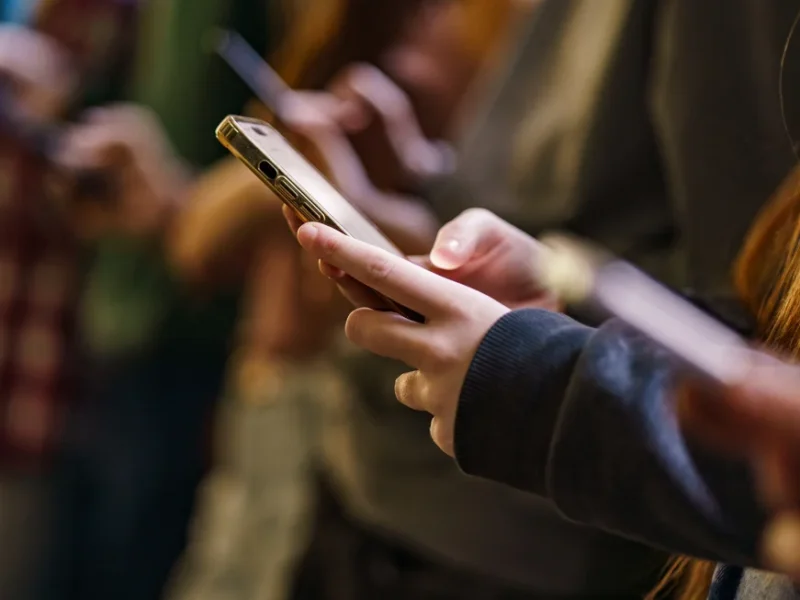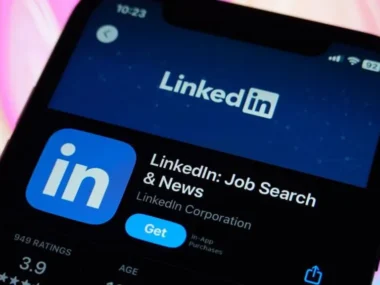As AI experts push to make the technology more human-like, researchers at Elon University have explored the reverse: how AI will reshape human thinking.
Their findings highlight a concerning trend—many experts fear AI could erode essential human skills such as empathy and critical thinking.
“I worry that while a small group will significantly benefit from AI, most people will surrender agency, creativity, and decision-making to these still-primitive tools,” futurist John Smart wrote in an essay for the university’s nearly 300-page report, The Future of Being Human, shared exclusively with CNN before its release on Wednesday.
These concerns arise as AI development accelerates, drawing billions in investment while sparking both skepticism and support from global governments. Tech giants like Google, Microsoft, and Meta are betting on AI to transform work, communication, and information retrieval by creating AI-powered assistants. However, experts warn that such advancements may increase human dependence on AI.
Already, AI’s rapid adoption raises major concerns, from job displacement to misinformation. The Elon University report further challenges the idea that AI will free humans from mundane tasks, allowing more focus on complex and creative work.
This report follows recent research from Microsoft and Carnegie Mellon University, which found that generative AI tools could weaken critical thinking skills.
“Core, transformative shift”
Elon University researchers surveyed 301 tech leaders, analysts, and academics, including Vint Cerf, a Google vice president and one of the “fathers of the internet”; Jonathan Grudin, a University of Washington professor and former Microsoft researcher; former Aspen Institute executive Charlie Firestone; and tech futurist Tracey Follows, CEO of Futuremade. Nearly 200 participants contributed full-length essays to the report.
Over 60% of respondents predicted that AI will significantly reshape human capabilities within the next decade, either in a “deep and meaningful” or “fundamental, revolutionary” way. Half believe these changes will be equally positive and negative, while 23% expect more harm than good. Only 16% foresee AI having a mostly positive impact, with the rest uncertain or expecting minimal change.
By 2035, respondents anticipate AI will negatively affect 12 key human traits, including social and emotional intelligence, critical thinking, empathy, moral reasoning, and mental well-being. The report suggests that reliance on AI for tasks like research and relationship-building could erode these abilities, potentially leading to greater polarization, deeper inequalities, and reduced human autonomy.
However, contributors identified three areas where AI could drive mostly positive change: curiosity and learning capacity, decision-making, and problem-solving with creativity. AI-powered tools for generating art and solving complex problems are already widely used, and many experts believe AI could create entirely new job categories alongside those it disrupts.
“The advancement of AI”
Many of the report’s concerns stem from how tech leaders foresee AI integrating into daily life by 2035.
Vint Cerf predicts that humans will increasingly depend on AI agents—digital assistants capable of tasks ranging from taking notes and booking reservations to negotiating business contracts and writing code. Early versions of these tools are already emerging, such as Amazon’s upgraded Alexa, which can order groceries, and Meta’s AI-powered customer service agents.
While these advancements could streamline daily tasks and support fields like medical research, Cerf warns of growing reliance on systems that are prone to failure. “These heavy dependencies are great when they work, but when they fail, they can be quite dangerous,” he told CNN, emphasizing the need for transparency and audit trails in AI systems.
Tech futurist Tracey Follows anticipates AI will extend beyond screens into wearables, buildings, and homes, enabling voice interactions. However, she cautions that this ease of access could lead to humans outsourcing empathy to AI, with digital assistants taking over caregiving, emotional support, and charitable acts. She also warns that people may form emotional bonds with AI personas, potentially diminishing real human relationships.
Such attachments are already evident, as some individuals create AI replicas of deceased loved ones for comfort, while others have raised concerns about the harmful effects of AI-driven relationships.
Despite these risks, experts believe there is still time to steer AI’s impact in a positive direction through regulation, digital literacy, and prioritizing human connections. Richard Reisman, a senior fellow at the Foundation for American Innovation, describes the next decade as a turning point in determining whether AI enhances or diminishes humanity.
“We’re being pushed in the wrong direction by the tech-industrial complex, but there’s still a chance to correct course,” Reisman wrote.











